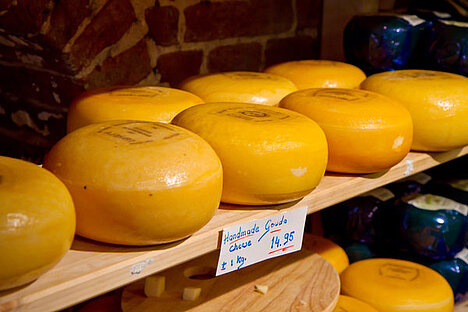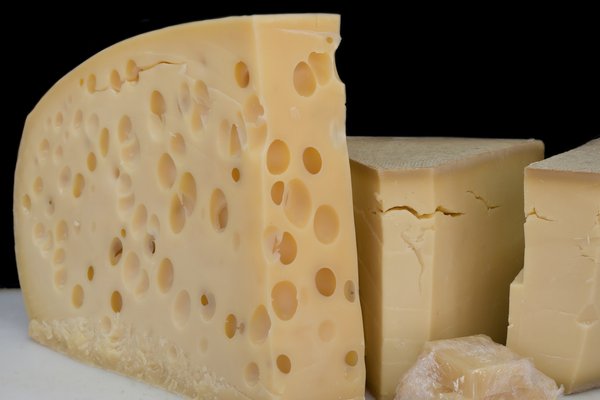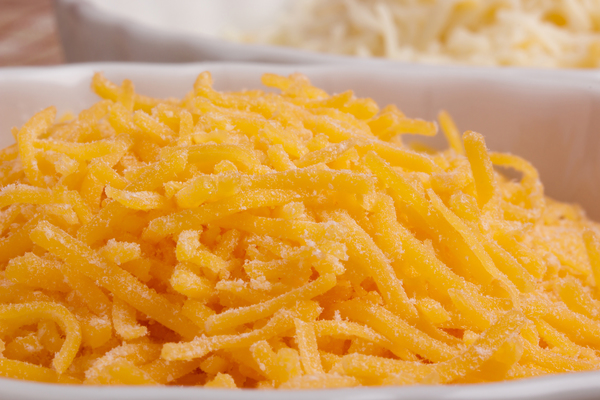Gouda

Gouda is a popular cheese made from cow's milk. It has a mild to tangy taste and a yellowish color. Many people like Gouda and enjoy eating it as a topping on bread, in casseroles or as a snack. But what about dogs? Can your dog eat Gouda? And if so, how much and how often? In this article, you'll find out everything you need to know about Gouda in relation to dogs.
What is Gouda?
Gouda is a semi-soft semi-hard cheese from the Netherlands. It is made from pasteurized or raw cow's milk with the addition of rennet and lactic acid bacteria. The cheese mass is pressed into molds and placed in brine. The cheese then matures for several weeks to months in cool storage rooms. The longer Gouda matures, the harder, drier and tangier it becomes. Gouda has a high fat content of around 30 to 40 percent in the dry matter and a high protein content of around 25 percent. It also contains calcium, phosphorus, vitamin A and vitamin B.
Benefits of Gouda for dogs
When fed in moderation, Gouda can have a number of benefits for dogs. On the one hand, it can serve as a treat or reward that dogs are happy to accept. Secondly, it can promote your dog's bone and dental health as it contains calcium and phosphorus. These minerals are important for building and maintaining bones and teeth. Gouda can also support your dog's digestion as it contains lactic acid bacteria. These can have a positive effect on the intestinal environment and strengthen the immune system.
Disadvantages of Gouda for dogs
However, Gouda also has some disadvantages for dogs that need to be considered. On the one hand, it can lead to obesity if it is fed too often or in too large quantities. Gouda has a high calorie content of around 350 kilocalories per 100 grams and can therefore quickly lead to excessive energy intake. Obesity can lead to various health problems in dogs, such as diabetes, cardiovascular disease or joint problems. Gouda can also cause digestive problems in dogs that are sensitive to dairy products. Some dogs have a lactose intolerance or a milk protein allergy and therefore cannot tolerate cheese. This can result in flatulence, diarrhea or vomiting.
How much and how often can my dog eat Gouda?
If you want to give your dog some Gouda from time to time, you should follow a few rules. Firstly, you should only feed small amounts, for example a small piece as a treat or as part of a meal. A rule of thumb is that cheese should not make up more than ten percent of your dog's daily calorie intake. You should also only feed mild to medium aged Gouda, as it contains less salt and less lactose than older Gouda. You should also make sure that the Gouda does not contain any additives such as colorants or preservatives that could harm your dog.
Gouda is a delicious cheese that can also be suitable for dogs in moderation.
Properties 7
Are you looking for other ingredients with a specific property?
Just click on them to find more.
If you notice any signs of hypersensitivity or poisoning in your dog, you should see your vet immediately. We are not a substitute for a vet, but we try to be as accurate as possible. Every dog reacts differently and we recommend you get a second opinion or consult your vet if in doubt.
Stay healthy and take good care of your four-legged friend!😊
Similar to Gouda
Cheese can be a tasty treat for dogs that also has health benefits. Edam cheese contains a lot of protein, which is important for muscle building and cell regeneration. It also provides calcium,...
Cheddar is a hard cheese that is made by heating and pressing milk. The whey is separated and the cheese mass is pressed into molds. The cheese then matures for several months to years, depending on...
Emmental consists mainly of cow's milk, which is pasteurized and mixed with rennet and lactic acid bacteria. The cheese then matures for several months in cool cellars, where it develops its typical...
Maasdamer is a semi-soft cheese made from cow's milk, originally from the Netherlands. Known for its large holes, similar to Swiss cheese, and its sweet, nutty taste, Maasdam is very popular. This...



